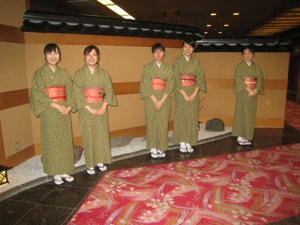 Medical Tourism: Sick Rx for Global Energy Consumption SAN FRANCISCO---) Two social forces—the increase in medical tourism and the imperative to decrease fossil fuel consumption—are at loggerheads. For a privileged group of health-seekers considering a wellness holiday or face lift at a destination spa or hip replacements, it's easy to hop on an international flight to Rio or Mumbai or Singapore. For over a decade, that has been the prerogative of the elite traveler, who figures their contribution to the global economy offsets any bump in greenhouse gas emissions. That logic might be hard to argue since new job markets have sprung up in formerly impoverished areas. But what if the masses—the thousands of millions below the super-affluent—decided that distant lands were the places to see doctors, get health care, buy elective surgeries, and enjoy wellness tune-ups? What does that do for efforts to curb fossil fuel production and excessive energy consumption? Well, the masses are being beckoned. Wellness tourism campaigns for every body at every budget are unfolding from Kerala, India to Bolivia, and promises of renewed health and vitality leave a wake of extravagant fuel consumption, along with tons of discarded water bottles. As a past speaker of the Global Spa and Wellness Summit, I'm receiving blog reports from the ongoing conference in Delhi, where the medical/wellness tourism industry tops $438 billion, according to a new SRI report commissioned by the top spas of the world.
Medical/wellness tourism is defined as, "Travel associated with the pursuit of maintaining or enhancing one's personal wellbeing." The SRI reports predicts that it will grow by 17% next year, 50% faster than overall global tourism, especially in Asia, Latin America, and Middle East/North Africa. India alone is expected to have a 20% a year increase through 2017, a major part of the $438.6 billion global market. India's success in turning "backwaters" into "spa boom towns" was the reason the Summit went to India this year. Keynote speaker, Amitabh Kant, CEO of the Delhi Mumbai Industrial Corridor Development Corporation, kicked off the Summit by chronicling the transformation of the southern state of Kerala from just another "sun and sand" destination to gleaming tourism model of Ayurvedic health, according to the GSWS blog. Even though Kerala is not the birthplace of Aryuveda, there are 119 Ayurveda hospitals and 16 Ayurveda colleges that were promoted along with a houseboat-exploration option for "cultural immersion." Now Kerala is honored as one of "50 must see" destinations in the world by travel magazines. I have no problem with the idea of seeking vigor or rejuvenation away from home. It's been part of healing quests since ancient Greeks journeyed to the temple of Aesclepius. But the philosophical dialogue for entering into a time of reflection and rejuvenation is worlds apart from the devastating impact of unhindered energy consumption and mounting greenhouse gas, bolstered by an outdated model of capitalism. We are fast approaching a point of no return if we continue to burn fossil fuels at the present rate, while the U.S and the rest of the G8 is joined by the rapidly growing economies of India, China, Southeast Asia and Latin America. Plus, there is something to be said for getting well in one's backyard, with use of locally produced foods, seasonally cultivated herbs and home-grown therapies for whatever ails you. Localized healing makes sense from a medical anthropology standpoint, since definitions of health and illness are cultural constructs to begin with, and healing encompasses much more than global marketplace purchases for monoculture demands, whether it's stem cells or Tahitian massages. Perhaps I'm just sensitive to medical care via a 22-hour flight, because I've tried it myself and realized the price you pay is more than the airline ticket. Follow-up and complications are rampant, and the therapeutic alliance of healer and seeker is non-existent or at least rarely delivered. I'm also moved by the message I just heard by Kumi Naidoo, Executive Director of Greenpeace International, as he defended Greenpeace's actions against the Russian ship looking to drill for fossil fuel in the Arctic. In a compelling message delivered to journalist Bill Moyers, Naidoo said it's time to wake up and courageously face the truth of how we're destroying our future prospects of human habitation on planet earth through our reckless and willful disregard for the causes of climate change. "Leave the oil in the soil, and coal in the hole," quipped Kaidoo to Bill Moyers in a recent interview. I'm passing that along to the medical/wellness tourism industry. See http://www.huffingtonpost.com/bill-moyers/kumi-naidoo-on-greenpeace_b_4003381.html) How do we reconcile this search for cheap health care two continents away with unending surge in greenhouse gas emissions? How do we practice regionally-based wellness in a post-fossil fuel age? I can think of two immediate ways right now. 1. Learn how a wellness lifestyle can halt and reverse the most crippling chronic diseases that ravage future health by getting an M.A. in Integrative Health at CIIS and learn to be a CIIS Certified Integrative Wellness Coach. You'll be a significant agent of health care change. Consider enrolling in spring 2014 or fall 2013. http://www.ciis.edu/Academics/Graduate_Programs/Integrative_Health_Studies.html 2. Shore up your spirit and intellect and social connections by attending Bioneers, either in person or virtually on October 18-20, 2013, in San Rafael, CA. http://conference.bioneers.org/sat/ Feel free to talk to me anytime about your desire to advocate for a healthier way of living for all. Prof. Meg Jordan, Chair of Integrative Health Studies, California Institute of Integral Studies. [email protected] 415 599-5523 Comments are closed.
|
Archives
April 2022
Categories |
 RSS Feed
RSS Feed